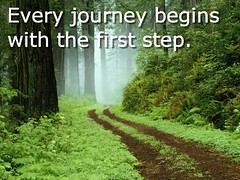 Image by Melody Campbell via FlickrPhilippa Buckley and Fiona Gilmore presented today on a study of teacher educations as they develop a web based teaching approach. There was emphasis on working with students in an online environment. One of the key points is that they were very aware of what they wanted the students to get out of the course by the end. They were used to workign with a distance mode, but not within a technical framework.
Image by Melody Campbell via FlickrPhilippa Buckley and Fiona Gilmore presented today on a study of teacher educations as they develop a web based teaching approach. There was emphasis on working with students in an online environment. One of the key points is that they were very aware of what they wanted the students to get out of the course by the end. They were used to workign with a distance mode, but not within a technical framework.They have been working on a number of smaller courses, and then weave them together in a way that was meaningful. The process involved course restructuring, as well as situating the study. The courses were 15 credit. Mass lectures were introduced, along with dula delivery cohorts, and teacm teaching. Courses were put on Moodle - which was quite challenging. Philippa and Fiona didn't have the technical skills to start with, and were working within a tight timeframe.
Because it was participatory research, ethical issues had to be considered in depth. There needed to be transparency around the results and what was being said in the research study write-ups. Two questions shaped the study: "How did a group of teacher educators develop and effective blended teaching course? How did the process challenge conceptions and existing teaching practices?"
 Image via WikipediaThe development team followed a model where the academic staff member with the overview, worked alongside a technical advisor. The team of academics "knew what they wanted to do but did not have a clue how to do it!" This meant they took a very long time to get established...in a time poor environment. The initial steps forward were small, and were based around a culture of making concrete decisions and thereby keeping things moving forward. The communication style of the team was very open and direct. The technical support person was key, and differentiated the way that she worked with people. The access and transparency of Moodle was a bit of a surprise, and led to a culture shift.
Image via WikipediaThe development team followed a model where the academic staff member with the overview, worked alongside a technical advisor. The team of academics "knew what they wanted to do but did not have a clue how to do it!" This meant they took a very long time to get established...in a time poor environment. The initial steps forward were small, and were based around a culture of making concrete decisions and thereby keeping things moving forward. The communication style of the team was very open and direct. The technical support person was key, and differentiated the way that she worked with people. The access and transparency of Moodle was a bit of a surprise, and led to a culture shift.They set out to developp and create a professional community that had a strong collaborative focus "It was a huge team on one site, And you know what they say about too many cooks. But you managed not to burn anything". Around the innovative pressures, one participant said "I just feel that my technical abilities are not matched and I see that it consumed so much of my time and that the workload doesn't reflect that, I just don't see how I can sustain that. And I found that really frustrating to the point I was in tears." And this was a factor that lurked behind them.
The results so far include the recognition that the professional conversations were essential and were focussed on the pedagogy, where they started to think about their online teaching in a very different way. Much of the shifting in practice has since been transferred to the face-to-face students. The conversations have been very rich, and have really enhanced the practitioners involved in the programme.






No comments:
Post a Comment